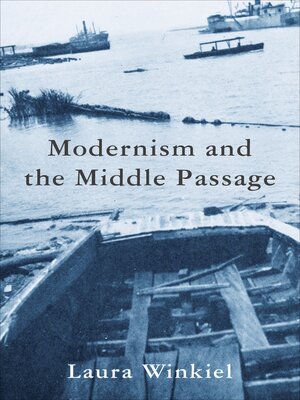
Sign up to save your library
With an OverDrive account, you can save your favorite libraries for at-a-glance information about availability. Find out more about OverDrive accounts.
Find this title in Libby, the library reading app by OverDrive.



Search for a digital library with this title
Title found at these libraries:
| Library Name | Distance |
|---|---|
| Loading... |
Modernism is typically thought of as focusing on the new and now, not looking backward at historical catastrophes. Yet in many surprising, often submerged ways, the transatlantic slave trade shaped the works of both Black and white writers. This book reveals how modernists turned to the Middle Passage—and, in so doing, upended Western ideas about time and space, race and gender, and the category of the human.
Bringing together Afro-diasporic and Black studies scholarship, modernist aesthetics, and environmental studies, Laura Winkiel presents a new literary history of modernism from the perspective of the Atlantic and its role in slavery and colonization. She examines the works of African, Caribbean, British, and US writers including Joseph Conrad, William Faulkner, Langston Hughes, Zora Neale Hurston, Claude McKay, Jean Rhys, Amos Tutuola, and Virginia Woolf, as well as later interlocutors such as Marlon James and Jamaica Kincaid. Paying particular attention to settings on shorelines, deltas, archipelagos, and the ocean, Winkiel argues that allusions to the slave trade make visible the exploitative structural relations between the metropolis and the colonies and between the liberal subject and its others. By turning to the ocean and its violent histories, this groundbreaking book rethinks the fraught relationship of modernism and race.







